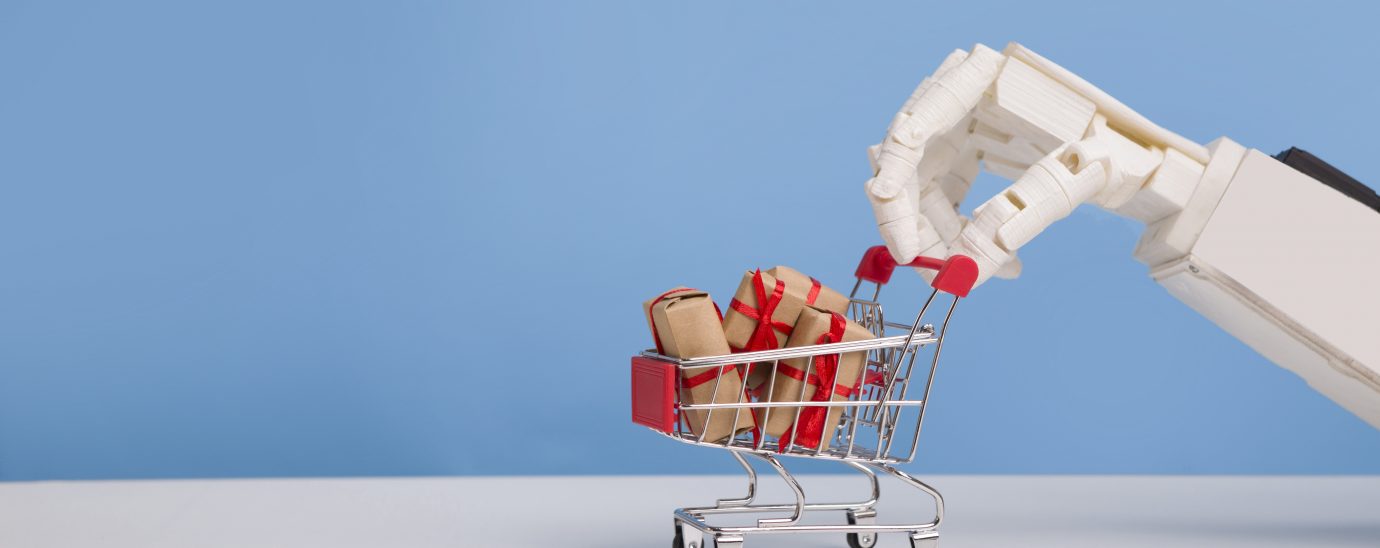AI creating all the buzz in retail

We look at how AI has become the new buzzword in the retail industry.
Over the last 20 months, the retail industry has undergone a massive transformation and has opened up a whole new world by using artificial intelligence. As mentioned by Karen K Burns, ‘AI’ has become something of a buzzword in retail, with retailers becoming particularly interested in how artificial intelligence(AI) can be utilised to drive productivity and cost savings.
In Google Cloud’s report, it explained that artificial intelligence and machine learning present us with novel and efficient ways to solve challenging and persistent problems, particularly when it comes to predictions. For example, retail relies heavily on making smart predictions due to its fast-moving, trend-powered, and fluid nature coupled with an extended logistics chain.
These technologies reduce the need for “gut feel” and guesswork by providing reliable insights into everything from the preferences of in-store staff to the customisation of customer offerings and more.
So, what are the key opportunities for retailers who use artificial intelligence?
Employee experience
The first key opportunity that we will look at is the merging of artificial intelligence and employee experience.
The contest for good workers is tight, and employees’ expectations are higher than ever. With the millennials and Generation-Z’s entering the market, it’s important to understand what they want and have the needed technology. By providing retail teams with leading-edge tech that uses artificial intelligence and machine learning, they will be provided with previously unavailable insights, improving efficiency and helping morale.
A great example of this is using a modern workforce management system that provides employees with an easy process for desired scheduling options and flexible clocking. Management will then have access to this data, which will help store data and improve labour modelling and task management.
Understanding competition
The second key opportunity that we are looking at is understanding competition and how to fit in. Retailers can make use of artificial intelligence to help them leverage data science rather than relying on guesswork. This will help them understand what customers want and when they want it and place these products at the top of inventory management. In addition, with increasing competition from online and in-store sellers, artificial intelligence will help retailers better determine their position in the market, distinguish their in-store and online experience while targeting their customers more effectively.
Application of predictive analytics
The last key opportunity that we are going to look at is applying predictive analytics. By incorporating data into powerful Artificial Intelligence-based algorithms, decisions can be made on solid data instead of guesses. Retailers can confidently use the data and incorporate it into their contingency plans. Machine learning and data science have made retail data more meaningful by compiling details of historic sales patterns, footfall figures, weather patterns, promotions, item location, and even productivity amongst staff. Through this information, retailers can predict where to place items on the shop floor and understand various discounting strategies.
In the last few years, many fashion retailers, in particular, have turned to AI to make their businesses more efficient while improving customer satisfaction. There are some awesome examples of how fashion brands have incorporated artificial intelligence or machine learning, and it has improved their customer experience and bottom lines.
Retail in championing AI
The French luxury good company Dior created an artificial intelligence beauty assistant via Facebook Messenger called Dior Insider. The purpose of this platform is part of the company’s plan to offer a more personalised approach to skincare and cosmetics shopping. When customers use the Dior Insider virtual chatbot, they can ask product-related questions or access branded social media content.
Beauty specialist Charlotte Tilbury launched Charlotte’s Magic Mirror Makeup Online. You can now try on Charlotte’s makeup magic icons from your phone. This allows their customers to play with the dreamy shades that they want to try and find the perfect makeup match with the magic of makeup artificial intelligence from the comfort of their home. This gives their current and potential new customers an awesome experience while encouraging them to press buy.
By using artificial intelligence, fashion and beauty brands get to know their customers more and can understand what they want and when. artificial intelligence functions on real-time data and is far more reliable when it comes to reporting behavioural trends.
READ MORE:
- The ethical nightmares of AI
- Increasing customer engagement with AI
- Creating sustainable, trustworthy AI
- How to create a highly effective AI team
Karen K Burns has stated that it’s not helpful for businesses to put all their eggs in one basket when it comes to artificial intelligence. There are no limits to the use cases for artificial intelligence in retail (check out some examples here), but artificial intelligence won’t solve all your problems at once. It’s all well and good paying for access to deep, actionable data insights in real-time, but if your people aren’t educated on using and tailoring the algorithms, the return on investment will be low.
For more news from Top Business Tech, don’t forget to subscribe to our daily bulletin!
